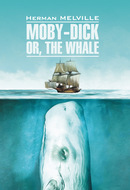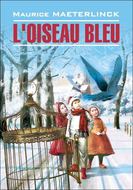Kitabı oku: «The Haunting of Bly Manor / Призраки усадьбы Блай. Книга для чтения на английском языке», sayfa 5
X
I remained awhile at the top of the stair, but with the effect presently of understanding that when my visitor had gone, he had gone: then I returned to my room. The foremost thing I saw there by the light of the candle I had left burning was that Flora’s little bed was empty; and on this I caught my breath with all the terror that, five minutes before, I had been able to resist. I dashed at the place in which I had left her lying and over which (for the small silk counterpane and the sheets were disarranged) the white curtains had been deceivingly pulled forward; then my step, to my unutterable relief, produced an answering sound: I perceived an agitation of the window blind, and the child, ducking down, emerged rosily from the other side of it. She stood there in so much of her candor and so little of her nightgown, with her pink bare feet and the golden glow of her curls. She looked intensely grave, and I had never had such a sense of losing an advantage acquired (the thrill of which had just been so prodigious) as on my consciousness that she addressed me with a reproach. “You naughty: where have you been?”—instead of challenging her own irregularity I found myself arraigned and explaining.79 She herself explained, for that matter, with the loveliest, eagerest simplicity. She had known suddenly, as she lay there, that I was out of the room, and had jumped up to see what had become of me. I had dropped, with the joy of her reappearance, back into my chair—feeling then, and then only, a little faint; and she had pattered straight over to me, thrown herself upon my knee, given herself to be held with the flame of the candle full in the wonderful little face that was still flushed with sleep. I remember closing my eyes an instant, yieldingly, consciously, as before the excess of something beautiful that shone out of the blue of her own. “You were looking for me out of the window?” I said. “You thought I might be walking in the grounds?”80
“Well, you know, I thought someone was”—she never blanched as she smiled out that at me.
Oh, how I looked at her now! “And did you see anyone?”
“Ah, no!” she returned, almost with the full privilege of childish inconsequence, resentfully, though with a long sweetness in her little drawl of the negative.
At that moment, in the state of my nerves, I absolutely believed she lied; and if I once more closed my eyes it was before the dazzle of the three or four possible ways in which I might take this up. One of these, for a moment, tempted me with such singular intensity that, to withstand it, I must have gripped my little girl with a spasm that, wonderfully, she submitted to without a cry or a sign of fright. Why not break out at her on the spot and have it all over?—give it to her straight in her lovely little lighted face? “You see, you see, you know that you do and that you already quite suspect I believe it; therefore, why not frankly confess it to me, so that we may at least live with it together and learn perhaps, in the strangeness of our fate, where we are and what it means?” This solicitation dropped, alas, as it came:81 if I could immediately have succumbed to it I might have spared myself—well, you’ll see what. Instead of succumbing I sprang again to my feet, looked at her bed, and took a helpless middle way. “Why did you pull the curtain over the place to make me think you were still there?”
Flora luminously considered; after which, with her little divine smile: “Because I don’t like to frighten you!”
“But if I had, by your idea, gone out—?”
She absolutely declined to be puzzled; she turned her eyes to the flame of the candle as if the question were as irrelevant, or at any rate as impersonal, as Mrs. Marcet or nine-times-nine.82 “Oh, but you know,” she quite adequately answered, “that you might come back, you dear, and that you have!” And after a little, when she had got into bed, I had, for a long time, by almost sitting on her to hold her hand, to prove that I recognized the pertinence of my return.
You may imagine the general complexion, from that moment, of my nights. I repeatedly sat up till I didn’t know when; I selected moments when my roommate unmistakably slept, and, stealing out, took noiseless turns in the passage and even pushed as far as to where I had last met Quint. But I never met him there again; and I may as well say at once that I on no other occasion saw him in the house. I just missed, on the staircase, on the other hand, a different adventure. Looking down it from the top I once recognized the presence of a woman seated on one of the lower steps with her back presented to me, her body half-bowed and her head, in an attitude of woe, in her hands. I had been there but an instant, however, when she vanished without looking round at me. I knew, nonetheless, exactly what dreadful face she had to show; and I wondered whether, if instead of being above I had been below, I should have had, for going up, the same nerve I had lately shown Quint. Well, there continued to be plenty of chance for nerve.83 On the eleventh night after my latest encounter with that gentleman—they were all numbered now—I had an alarm that perilously skirted it and that indeed, from the particular quality of its unexpectedness, proved quite my sharpest shock. It was precisely the first night during this series that, weary with watching, I had felt that I might again without laxity lay myself down at my old hour. I slept immediately and, as I afterward knew, till about one o’clock; but when I woke it was to sit straight up, as completely roused as if a hand had shook me. I had left a light burning, but it was now out, and I felt an instant certainty that Flora had extinguished it. This brought me to my feet and straight, in the darkness, to her bed, which I found she had left. A glance at the window enlightened me further, and the striking of a match completed the picture.
The child had again got up—this time blowing out the taper, and had again, for some purpose of observation or response, squeezed in behind the blind and was peering out into the night. That she now saw—as she had not, I had satisfied myself, the previous time—was proved to me by the fact that she was disturbed neither by my reillumination nor by the haste I made to get into slippers and into a wrap. Hidden, protected, absorbed, she evidently rested on the sill—the casement opened forward—and gave herself up. There was a great still moon to help her, and this fact had counted in my quick decision. She was face to face with the apparition we had met at the lake,84 and could now communicate with it as she had not then been able to do. What I, on my side, had to care for was, without disturbing her, to reach, from the corridor, some other window in the same quarter. I got to the door without her hearing me; I got out of it, closed it, and listened, from the other side, for some sound from her. While I stood in the passage I had my eyes on her brother’s door, which was but ten steps off and which, indescribably, produced in me a renewal of the strange impulse that I lately spoke of as my temptation. What if I should go straight in and march to his window?—what if, by risking to his boyish bewilderment a revelation of my motive, I should throw across the rest of the mystery the long halter of my boldness?
This thought held me sufficiently to make me cross to his threshold and pause again. I preternaturally listened; I figured to myself what might portentously be; I wondered if his bed were also empty and he too were secretly at watch. It was a deep, soundless minute, at the end of which my impulse failed. He was quiet; he might be innocent; the risk was hideous; I turned away. There was a figure in the grounds—a figure prowling for a sight, the visitor with whom Flora was engaged; but it was not the visitor most concerned with my boy. I hesitated afresh, but on other grounds and only for a few seconds; then I had made my choice. There were empty rooms at Bly, and it was only a question of choosing the right one. The right one suddenly presented itself to me as the lower one—though high above the gardens—in the solid corner of the house that I have spoken of as the old tower. This was a large, square chamber, arranged with some state as a bedroom, the extravagant size of which made it so inconvenient that it had not for years, though kept by Mrs. Grose in exemplary order, been occupied. I had often admired it and I knew my way about in it; I had only, after just faltering at the first chill gloom of its disuse, to pass across it and unbolt as quietly as I could one of the shutters. Achieving this transit, I uncovered the glass without a sound and, applying my face to the pane, was able, the darkness without being much less than within, to see that I commanded the right direction. Then I saw something more. The moon made the night extraordinarily penetrable and showed me on the lawn a person, diminished by distance, who stood there motionless and as if fascinated, looking up to where I had appeared—looking, that is, not so much straight at me as at something that was apparently above me. There was clearly another person above me—there was a person on the tower; but the presence on the lawn was not in the least what I had conceived and had confidently hurried to meet. The presence on the lawn—I felt sick as I made it out—was poor little Miles himself.
XI
It was not till late next day that I spoke to Mrs. Grose; the rigor with which I kept my pupils in sight making it often difficult to meet her privately, and the more as we each felt the importance of not provoking—on the part of the servants quite as much as on that of the children—any suspicion of a secret flurry or that of a discussion of mysteries. I drew a great security in this particular from her mere smooth aspect. There was nothing in her fresh face to pass on to others my horrible confidences. She believed me, I was sure, absolutely: if she hadn’t I don’t know what would have become of me, for I couldn’t have borne the business alone. But she was a magnificent monument to the blessing of a want of imagination,85 and if she could see in our little charges nothing but their beauty and amiability, their happiness and cleverness, she had no direct communication with the sources of my trouble. If they had been at all visibly blighted or battered, she would doubtless have grown, on tracing it back, haggard enough to match them; as matters stood, however, I could feel her, when she surveyed them, with her large white arms folded and the habit of serenity in all her look, thank the Lord’s mercy that if they were ruined the pieces would still serve. Flights of fancy gave place, in her mind, to a steady fireside glow, and I had already begun to perceive how, with the development of the conviction that—as time went on without a public accident—our young things could, after all, look out for themselves, she addressed her greatest solicitude to the sad case presented by their instructress. That, for myself, was a sound simplification: I could engage that, to the world, my face should tell no tales, but it would have been, in the conditions, an immense added strain to find myself anxious about hers.
At the hour I now speak of she had joined me, under pressure, on the terrace, where, with the lapse of the season, the afternoon sun was now agreeable; and we sat there together while, before us, at a distance, but within call if we wished, the children strolled to and fro in one of their most manageable moods. They moved slowly, in unison, below us, over the lawn, the boy, as they went, reading aloud from a storybook and passing his arm round his sister to keep her quite in touch. Mrs. Grose watched them with positive placidity; then I caught the suppressed intellectual creak with which she conscientiously turned to take from me a view of the back of the tapestry. I had made her a receptacle of lurid things, but there was an odd recognition of my superiority86—my accomplishments and my function—in her patience under my pain. She offered her mind to my disclosures as, had I wished to mix a witch’s broth and proposed it with assurance, she would have held out a large clean saucepan. This had become thoroughly her attitude by the time that, in my recital of the events of the night, I reached the point of what Miles had said to me when, after seeing him, at such a monstrous hour, almost on the very spot where he happened now to be, I had gone down to bring him in; choosing then, at the window, with a concentrated need of not alarming the house, rather that method than a signal more resonant. I had left her meanwhile in little doubt of my small hope of representing with success even to her actual sympathy my sense of the real splendor of the little inspiration with which, after I had got him into the house, the boy met my final articulate challenge. As soon as I appeared in the moonlight on the terrace, he had come to me as straight as possible; on which I had taken his hand without a word and led him, through the dark spaces, up the staircase where Quint had so hungrily hovered for him, along the lobby where I had listened and trembled, and so to his forsaken room.
Not a sound, on the way, had passed between us, and I had wondered—oh, how I had wondered!—if he were groping about in his little mind for something plausible and not too grotesque.87 It would tax his invention, certainly, and I felt, this time, over his real embarrassment, a curious thrill of triumph. It was a sharp trap for the inscrutable! He couldn’t play any longer at innocence; so how the deuce would he get out of it? There beat in me indeed, with the passionate throb of this question an equal dumb appeal as to how the deuce I should. I was confronted at last, as never yet, with all the risk attached even now to sounding my own horrid note. I remember in fact that as we pushed into his little chamber, where the bed had not been slept in at all and the window, uncovered to the moonlight, made the place so clear that there was no need of striking a match—I remember how I suddenly dropped, sank upon the edge of the bed from the force of the idea that he must know how he really, as they say, “had” me. He could do what he liked, with all his cleverness to help him, so long as I should continue to defer to the old tradition of the criminality of those caretakers of the young who minister to superstitions and fears. He “had” me indeed, and in a cleft stick;88 for who would ever absolve me, who would consent that I should go unhung, if, by the faintest tremor of an overture, I were the first to introduce into our perfect intercourse an element so dire? No, no: it was useless to attempt to convey to Mrs. Grose, just as it is scarcely less so to attempt to suggest here, how, in our short, stiff brush in the dark, he fairly shook me with admiration. I was of course thoroughly kind and merciful; never, never yet had I placed on his little shoulders hands of such tenderness as those with which, while I rested against the bed, I held him there well under fire. I had no alternative but, in form at least, to put it to him.
“You must tell me now—and all the truth. What did you go out for? What were you doing there?”
I can still see his wonderful smile, the whites of his beautiful eyes, and the uncovering of his little teeth shine to me in the dusk. “If I tell you why, will you understand?” My heart, at this, leaped into my mouth. Would he tell me why? I found no sound on my lips to press it, and I was aware of replying only with a vague, repeated, grimacing nod. He was gentleness itself, and while I wagged my head at him he stood there more than ever a little fairy prince. It was his brightness indeed that gave me a respite. Would it be so great if he were really going to tell me? “Well,” he said at last, “just exactly in order that you should do this.”
“Do what?”
“Think me—for a change—bad!” I shall never forget the sweetness and gaiety with which he brought out the word, nor how, on top of it, he bent forward and kissed me. It was practically the end of everything. I met his kiss and I had to make, while I folded him for a minute in my arms, the most stupendous effort not to cry. He had given exactly the account of himself that permitted least of my going behind it, and it was only with the effect of confirming my acceptance of it that, as I presently glanced about the room, I could say—
“Then you didn’t undress at all?”
He fairly glittered in the gloom. “Not at all. I sat up and read.”
“And when did you go down?”
“At midnight. When I’m bad I am bad!”
“I see, I see—it’s charming. But how could you be sure I would know it?”
“Oh, I arranged that with Flora.” His answers rang out with a readiness! “She was to get up and look out.”
“Which is what she did do.” It was I who fell into the trap!
“So she disturbed you, and, to see what she was looking at, you also looked—you saw.”
“While you,” I concurred, “caught your death in the night air!”89
He literally bloomed so from this exploit that he could afford radiantly to assent. “How otherwise should I have been bad enough?” he asked. Then, after another embrace, the incident and our interview closed on my recognition of all the reserves of goodness that, for his joke, he had been able to draw upon.
XII
The particular impression I had received proved in the morning light, I repeat, not quite successfully presentable to Mrs. Grose, though I reinforced it with the mention of still another remark that he had made before we separated. “It all lies in half a dozen words,” I said to her, “words that really settle the matter. ‘Think, you know, what I might do!’ He threw that off to show me how good he is. He knows down to the ground what he ‘might’ do. That’s what he gave them a taste of at school.”
“Lord, you do change!” cried my friend.
“I don’t change—I simply make it out. The four, depend upon it, perpetually meet.90 If on either of these last nights you had been with either child, you would clearly have understood. The more I’ve watched and waited the more I’ve felt that if there were nothing else to make it sure it would be made so by the systematic silence of each. Never, by a slip of the tongue, have they so much as alluded to either of their old friends, any more than Miles has alluded to his expulsion. Oh, yes, we may sit here and look at them, and they may show off to us there to their fill; but even while they pretend to be lost in their fairytale they’re steeped in their vision of the dead restored. He’s not reading to her,” I declared; “they’re talking of them—they’re talking horrors! I go on, I know, as if I were crazy; and it’s a wonder I’m not. What I’ve seen would have made you so; but it has only made me more lucid, made me get hold of still other things.”
My lucidity must have seemed awful, but the charming creatures who were victims of it, passing and repassing in their interlocked sweetness, gave my colleague something to hold on by; and I felt how tight she held as, without stirring in the breath of my passion, she covered them still with her eyes. “Of what other things have you got hold?”
“Why, of the very things that have delighted, fascinated, and yet, at bottom, as I now so strangely see, mystified and troubled me. Their more than earthly beauty, their absolutely unnatural goodness. It’s a game,” I went on; “it’s a policy and a fraud!”
“On the part of little darlings—?”
“As yet mere lovely babies? Yes, mad as that seems!” The very act of bringing it out really helped me to trace it—follow it all up and piece it all together. “They haven’t been good—they’ve only been absent. It has been easy to live with them, because they’re simply leading a life of their own. They’re not mine—they’re not ours. They’re his and they’re hers!”
“Quint’s and that woman’s?”
“Quint’s and that woman’s. They want to get to them.”
Oh, how, at this, poor Mrs. Grose appeared to study them! “But for what?”
“For the love of all the evil that, in those dreadful days, the pair put into them. And to ply them with that evil still, to keep up the work of demons, is what brings the others back.”
“Laws!”91 said my friend under her breath. The exclamation was homely, but it revealed a real acceptance of my further proof of what, in the bad time—for there had been a worse even than this!—must have occurred. There could have been no such justification for me as the plain assent of her experience to whatever depth of depravity I found credible in our brace of scoundrels. It was in obvious submission of memory that she brought out after a moment: “They were rascals! But what can they now do?” she pursued.
“Do?” I echoed so loud that Miles and Flora, as they passed at their distance, paused an instant in their walk and looked at us. “Don’t they do enough?” I demanded in a lower tone, while the children, having smiled and nodded and kissed hands to us, resumed their exhibition. We were held by it a minute; then I answered: “They can destroy them!” At this my companion did turn, but the inquiry she launched was a silent one, the effect of which was to make me more explicit. “They don’t know, as yet, quite how—but they’re trying hard. They’re seen only across, as it were, and beyond—in strange places and on high places, the top of towers, the roof of houses, the outside of windows, the further edge of pools; but there’s a deep design, on either side, to shorten the distance and overcome the obstacle; and the success of the tempters is only a question of time. They’ve only to keep to their suggestions of danger.”
“For the children to come?”
“And perish in the attempt!” Mrs. Grose slowly got up, and I scrupulously added: “Unless, of course, we can prevent!”
Standing there before me while I kept my seat, she visibly turned things over. “Their uncle must do the preventing. He must take them away.”
“And who’s to make him?”
She had been scanning the distance, but she now dropped on me a foolish face. “You, miss.”
“By writing to him that his house is poisoned and his little nephew and niece mad?”
“But if they are, miss?”
“And if I am myself, you mean? That’s charming news to be sent him by a governess whose prime undertaking was to give him no worry.”
Mrs. Grose considered, following the children again. “Yes, he do hate worry. That was the great reason—”
“Why those fiends took him in so long? No doubt, though his indifference must have been awful. As I’m not a fiend, at any rate, I shouldn’t take him in.”
My companion, after an instant and for all answer, sat down again and grasped my arm. “Make him at any rate come to you.”
I stared. “To me?” I had a sudden fear of what she might do. “‘Him’?”
“He ought to be here—he ought to help.”
I quickly rose, and I think I must have shown her a queerer face than ever yet. “You see me asking him for a visit?” No, with her eyes on my face she evidently couldn’t. Instead of it even—as a woman reads another—she could see what I myself saw: his derision, his amusement, his contempt for the breakdown of my resignation at being left alone and for the fine machinery I had set in motion to attract his attention to my slighted charms. She didn’t know—no one knew—how proud I had been to serve him and to stick to our terms; yet she nonetheless took the measure, I think, of the warning I now gave her. “If you should so lose your head as to appeal to him for me—”
She was really frightened. “Yes, miss?”
“I would leave, on the spot, both him and you.”
Ücretsiz ön izlemeyi tamamladınız.








